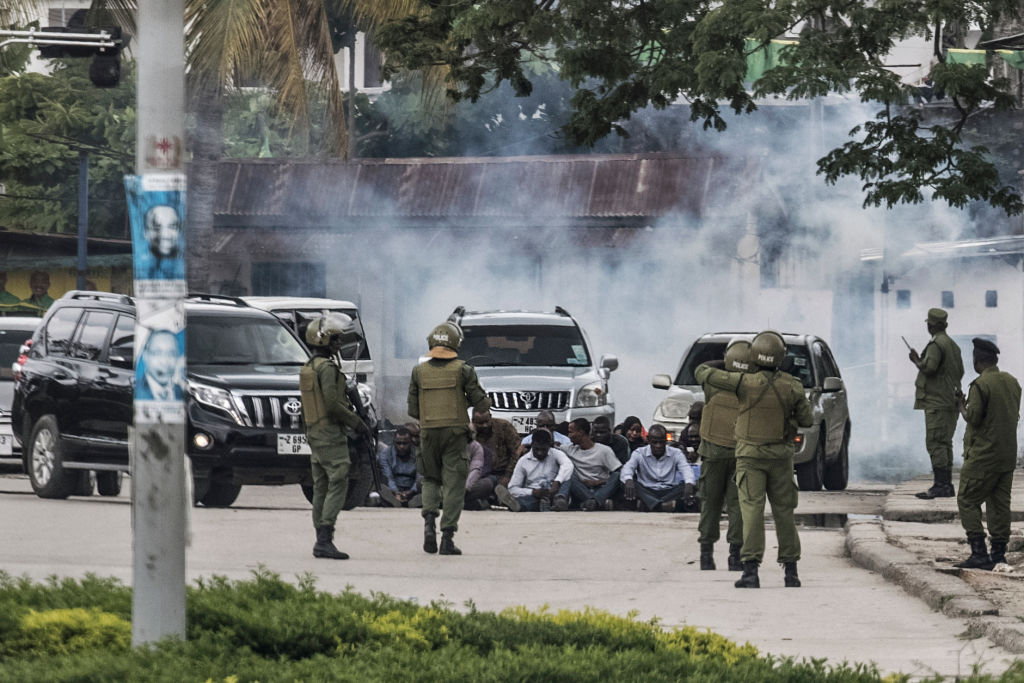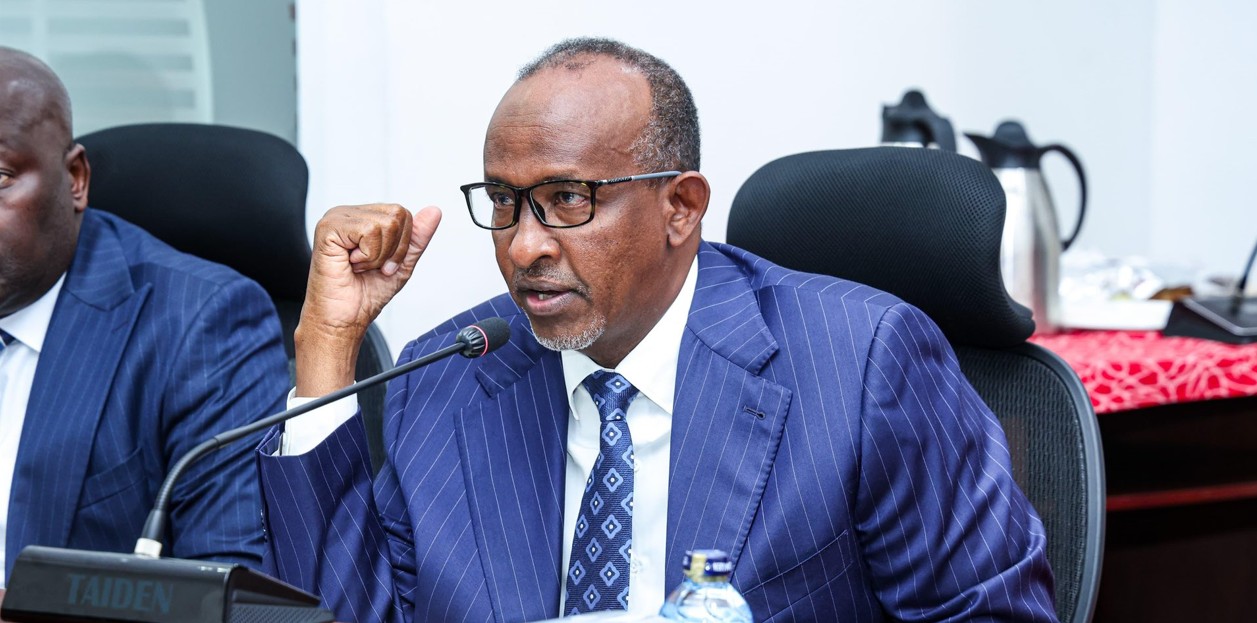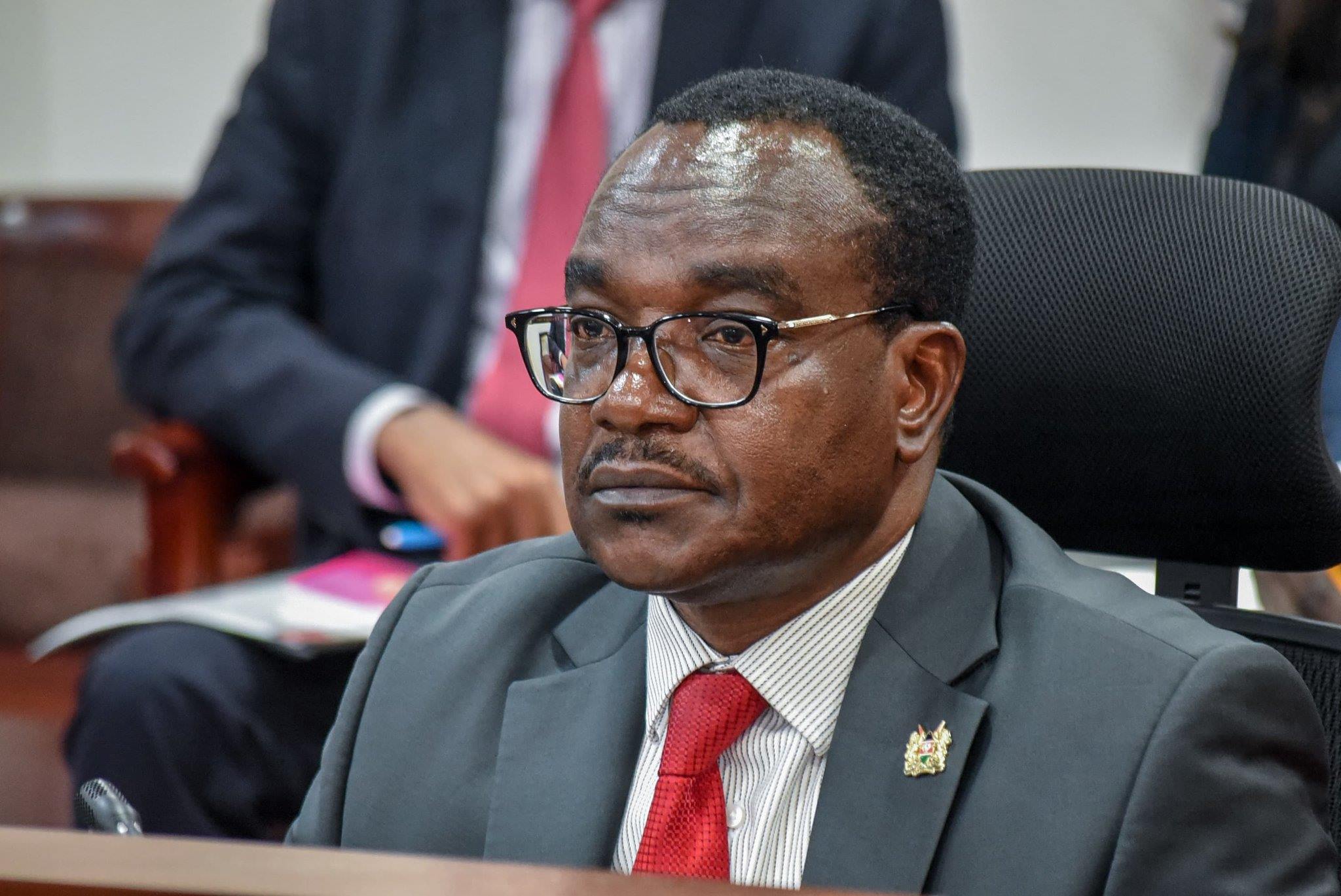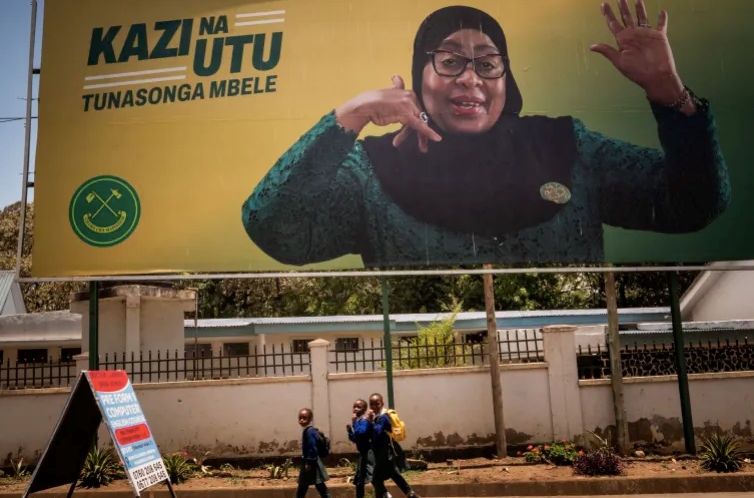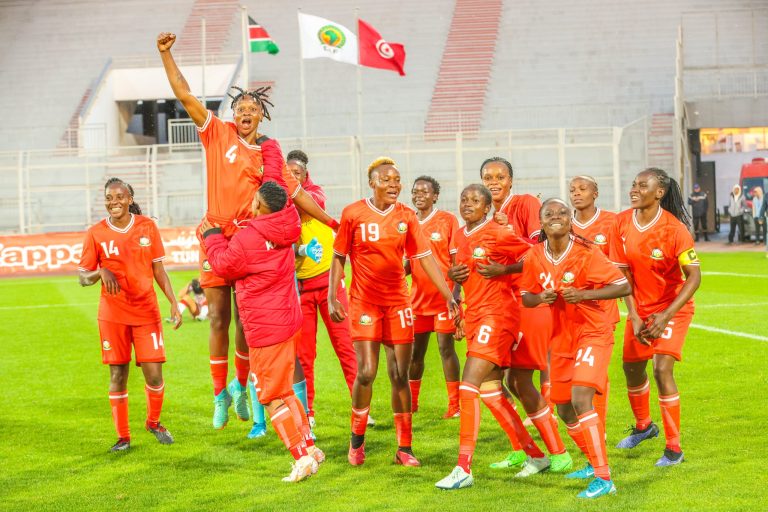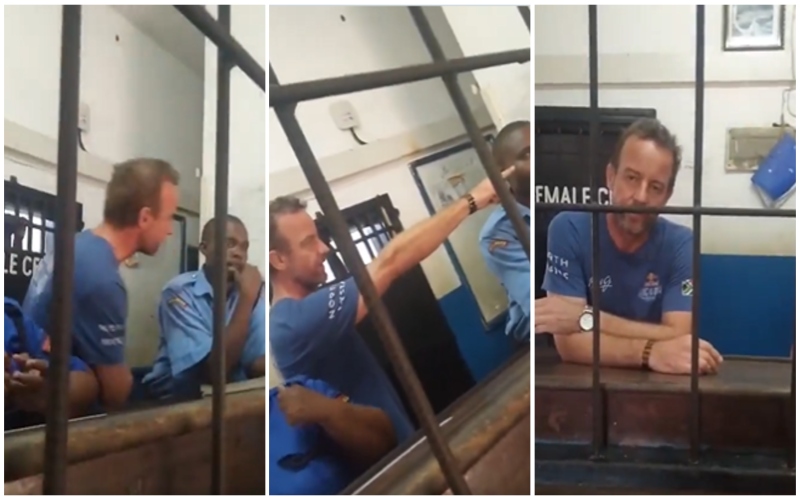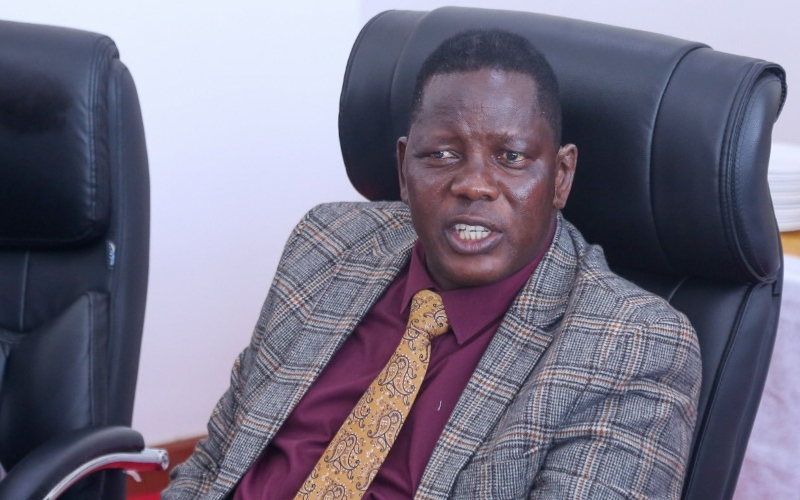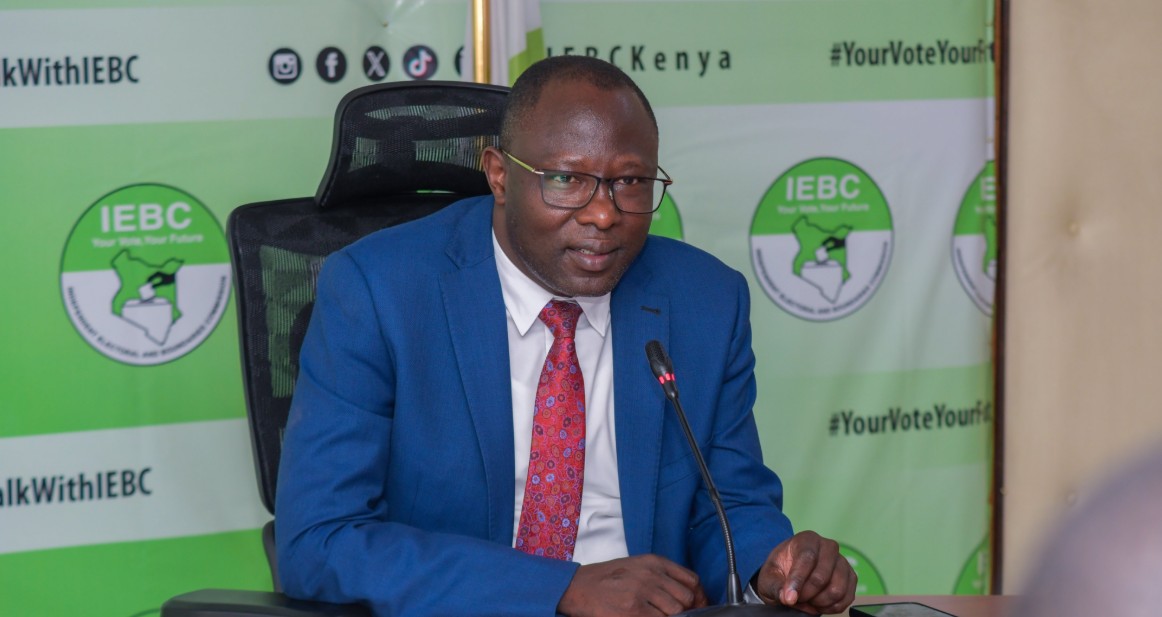Lamu’s Kahawa Chungu brewer marks 25 years of tradition and rich flavour
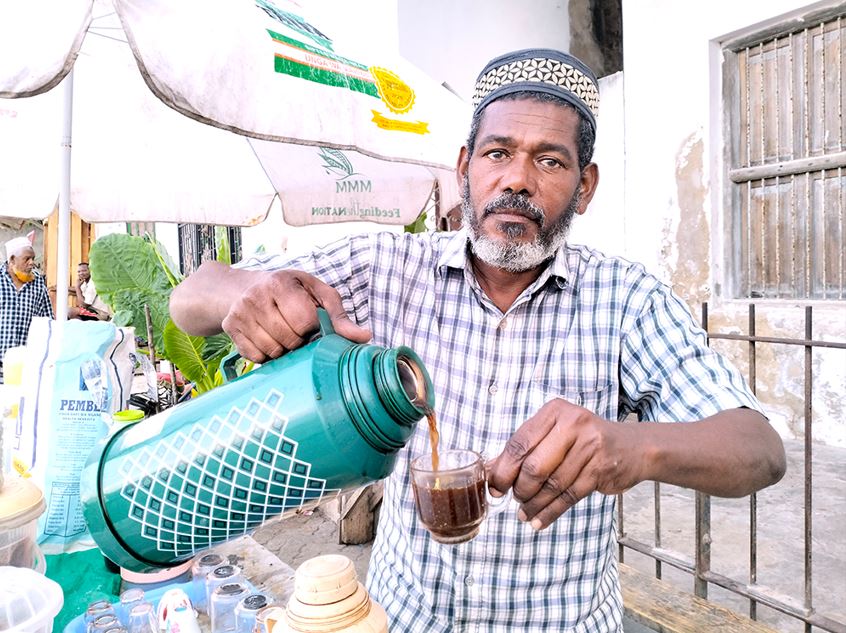
Farid Mohamed’s black coffee is more than just a beverage, it is a symbol of Lamu's rich heritage.
After a day full of activity and physical exhaustion, there is nothing quite like heading to the most popular gathering spot in town. This vibrant hub, where locals relax in the gentle evening breeze, offers a stunning sunset view and a taste of Lamu County's most beloved drink.
The enchanting aroma and distinctive flavour, spiced with exotic Arabian Zanzibar influence, make it impossible to resist.
More To Read
- Kipini residents urge government to preserve historic DC’s office as tourist heritage site
- Kenya to open coffee auctions to global buyers to boost farmers' earnings, Kagwe says
- SokoLamu: County launches first online marketplace to boost local trade
- Cultural treasure: Uncovering secrets of Lamu's 400-year-old tombs
- Tana River unveils its first museum showcasing county's rich cultural heritage
- Lamu Old Town residents decry rise in insecurity due to lack of streetlights
This cherished tradition started in the 1990s when Farid Mohamed Silaha, known to all as 'Kahawa,' began his coffee business on the streets of Lamu Island.
Today, at 62, he has spent over 25 years captivating locals and tourists with his exceptional brewing skills, producing the famously bitter black coffee known as Kahawa Chungu.
Kahawa Chungu, a popular beverage among the Swahili people of Kenya's coast, is more than just a drink; it is a cultural treasure. Made from locally roasted and ground coffee beans, it is brewed to a rich, dark perfection and served with little or no sugar, sometimes flavoured with ginger or honey.
Customers interviewed by The Eastleigh Voice shared their deep appreciation for Farid's coffee.
Said Hassan, 50, finds it a comforting ritual to enjoy a cup of black coffee before heading home. “I love drinking bitter coffee. After a long, tiring day, it is the best way to unwind,” he said, adding that many believe in its aphrodisiac qualities.
Amina Salim, a resident of Lamu, appreciates the sense of community Farid’s coffee joint fosters. "It is not just about the coffee; it is about the connections we make here. I have met so many wonderful people, and it has become a part of my daily routine to catch up with friends over a cup of Kahawa Chungu," she said.
Tourists enthralled
Tourists are similarly enthralled with the experience. Harry Thomas, a UK tourist, has become a loyal customer. “I visit Farid’s coffee shop around 4:30 pm daily. The coffee is somewhat addictive, and I have made many friends here since arriving in Lamu six months ago. Sharing a cup of black coffee has helped strengthen our friendships,” he said.
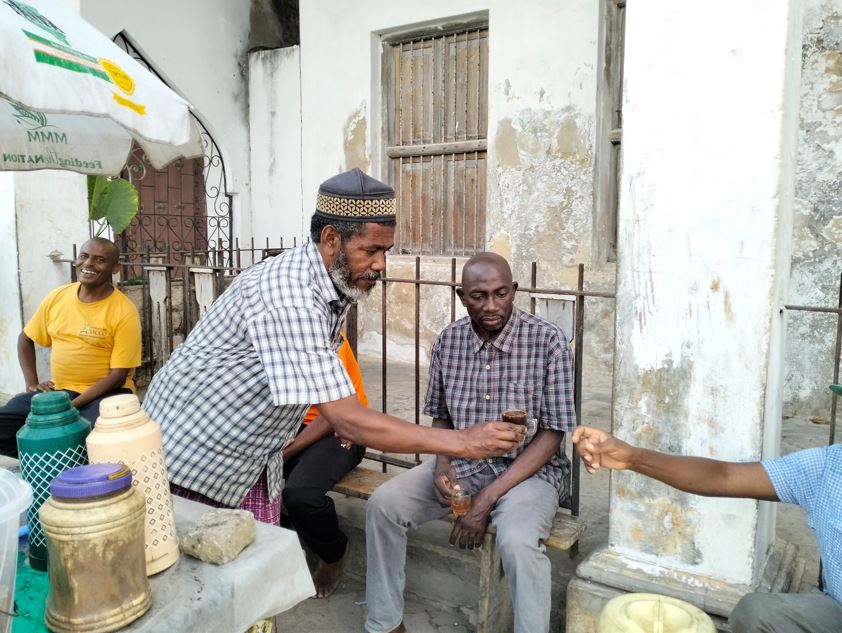 Farid Mohamed alias Kahawa, 62, serves black coffee or kahawa chungu to his customers at Lamu's seafront area. (Photo: Farhiya Hussein)
Farid Mohamed alias Kahawa, 62, serves black coffee or kahawa chungu to his customers at Lamu's seafront area. (Photo: Farhiya Hussein)
Jessica Morales, a traveller from Spain, described her visits to the coffee shop as a highlight of her trip. “The coffee is incredible, but it is the atmosphere that keeps bringing me back. There is something magical about sitting here, sipping coffee, and watching the sunset. It feels like a true Lamu experience,” she said.
Khadija Athman remarked that black coffee is a cherished tradition in many Coastal Swahili households, particularly in Lamu, Mombasa, and Malindi, where it would be the beverage that welcomed guests.
The ingredients for Kahawa Chungu include cinnamon (mdalasini), sugar, cloves (karafuu), cardamom (iliki), and sometimes nutmeg and ginger, with varying concentrations creating its unique flavour.
Farid's commitment to Kahawa Chungu has evolved into a custom that draws people together, generating lasting memories and instilling a strong sense of belonging.
Coffee pairs well with mahamri, kaimati (deep-fried dough buns), and other local foods, frequently sold in coffee shops.
The father of three was born in Matondoni Village on the Lamu Island in 1961. He finished his primary schooling in grade 7 in the same village. Due to poverty, he could not further his studies.
“My story is one of resilience, tradition, and excellence,” he said. Through passion and dedication, Farid has preserved a cultural practice and created a legacy that attracts admirers globally.
Farid disclosed that his unique brewing techniques have attracted customers from all corners of the globe, including Tanzania, Uganda, Italy, Spain, Germany, and many other countries.
Reflecting on his journey, he shared that when he started his business in the 1990s, a cup of his coffee sold for merely Sh3 to Sh5. Today, he sells a small cup for Sh15 and a medium-sized cup for Sh40, yielding a substantial daily profit.
His popularity and ongoing success raise the question of what distinguishes him from other black coffee producers in the Lamu Archipelago and the wider Coast region. Farid believes that the secret lies in the balance of elements.
"Anyone can make black coffee if they know the recipe. However, not all black coffee tastes the same. The quality of the brew determines your customer base," he said.
His dedication to achieving the perfect concentration and spicing of his Kahawa Chungu has been crucial. He brews his coffee traditionally, using a long-necked brass kettle over a charcoal stove or burner, which he proudly shows to his customers.
Farid disclosed that he learned his talents through apprenticeship and did not have a formal education in food and beverage or hotel management.
“My grandparents were experts in brewing Kahawa Chungu. I used to watch them keenly and gradually started practising it myself until I perfected it,” he said.
His expertise is highly sought after by professionals in the food and beverage industry. “Many undergraduate students studying related courses come to Lamu for industrial attachments and end up being directed to me,” he said.
Top Stories Today
